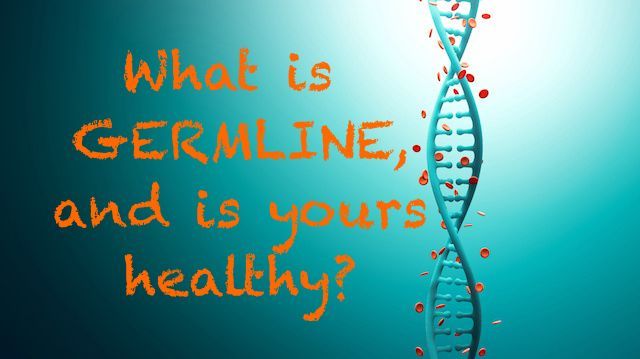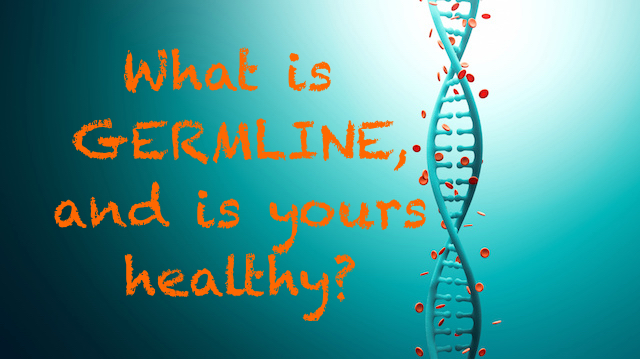
You’re carrying precious cargo. There are cells inside of your body at this very moment that will determine the health of generations to come.
The germline, which is a type of cell that is embedded in the testes or ovaries, is already in the process of coding for future generations. What you do now can affect not just your future children but also their children.
This discovery is opening the door to a whole new field of biology called epigenetics. This is an add-on field to regular genetics — hence the prefix “epi” meaning “above” or “outside of.”
While genetics covers our actual genes, epigenetics refers to how genes are packaged and expressed within the body. Genes can be turned on and off with these genetic marking tags, depending on environmental factors such as diet, illness and life experiences.
Genes themselves remain the same in every type of cell throughout the body, but the epigenome is a complex molecular instruction guide which acts as an overlay to the genes, telling each cell type how to function. This can change during a person’s life and over generations.
For example, your genes might include a predisposition to breast cancer. Epigenetically, if you take good care of yourself and have a stress-free life, this gene will probably remain “turned off.” On the other hand, if you eat junky food and never take time to relax, the gene would be more likely to get switched on.
The germline cells are essentially the encapsulation of all of your genetic and epigenetic information passed down through the generations. These are like the black box for your body and your lineage. In contrast, the rest of your body is made up of cells called somatic cells, which are coded from the germline and simply make up your bones, organs, blood, etc.
Breakthrough scientific studies
The first studies revealing the mechanisms of epigenetics were done on rats. When rats were injected with toxins, such as BPA or fungicides, specific gene tagging changes were observed, and these were seen in a number of following generations, even when the exposure to the chemical was not continued past the first generation.
Researchers at the University of Adelaide, Australia reported that habits, actions and experiences of parents get stored in a type of code within the egg and sperm. These bits of information get translated into concrete changes affecting the formation of an embryo.
Some of the most interesting research stems from the widespread use of fertility medications from the 1950s to the 1970s. It is commonly observed that repercussions of fertility medications are seen not so much in women’s children, but in their grandchildren. This occurs because the embryo’s own germline cells are formed while the embryo is in early development. The carry-on effects of prescription medications suggest that the germline is more vulnerable even than the embryo itself.
How to protect your germline
 Germline cells are vulnerable to damage during specific periods of development. For women this is largely during the time that they themselves are an embryo inside their mother’s womb. This means that the health of your children may be largely predetermined by your mother’s actions while you were in gestation. While much of the epigenetic coding may be decided, you can still work to keep your eggs as healthy as possible with good diet and lifestyle practices.
Germline cells are vulnerable to damage during specific periods of development. For women this is largely during the time that they themselves are an embryo inside their mother’s womb. This means that the health of your children may be largely predetermined by your mother’s actions while you were in gestation. While much of the epigenetic coding may be decided, you can still work to keep your eggs as healthy as possible with good diet and lifestyle practices.
In men, germline cells are continuously being developed from adolescence onward. There are even finishing touches made just before the sperm fully matures. The sperm maturation process takes about 48 days. Therefore it’s important to allow at least a couple of months of healthy living prior to trying to conceive in order to ensure the best sperm quality. It is also, of course, advantageous to the reproductive cells to maintain good health in general throughout adulthood (not just before trying to have a baby) so that the best information can get passed on through the germline.
Building and preserving good-quality reproductive cells is best done through a holistic lifestyle and nutritious diet along the lines of all of our articles here at The Alternative Daily. It’s also vital to protect yourself from hormone-disrupting chemicals, which can do irreversible damage at the germline level.
We have so much great information to offer — to support your fertility, your health, and the health of your children. Learn more about healthy eating, good lifestyle practices and environmental toxins.
—The Alternative Daily
Sources:
http://www.nature.com/nature/journal/v428/n6979/abs/nature02316.html
http://www.biolreprod.org/content/69/2/612.short
https://www.sciencenews.org/article/editing-human-germline-cells-sparks-ethics-debate
http://www.economist.com/news/science-and-technology/21565573-some-effects-smoking-may-be-passed-grandmother
http://discovermagazine.com/2013/may/13-grandmas-experiences-leave-epigenetic-mark-on-your-genes
https://www.sciencenews.org/article/great-grandma-you
http://www.smithsonianmag.com/innovation/the-toxins-that-affected-your-great-grandparents-could-be-in-your-genes-180947644/?no-ist
http://www.nationaljournal.com/next-america/health/epigenetics-the-controversial-science-behind-racial-and-ethnic-health-disparities-20140320
http://www.sciencedaily.com/releases/2012/09/120926213939.htm
http://www.the-scientist.com/?articles.view/articleNo/39841/title/Epigenetic-Effects-of-Mom-s-Diet
http://www.telegraph.co.uk/news/science/10369861/Epigenetics-How-to-alter-your-genes.html
http://www.medicalnewstoday.com/articles/281127.php
http://www.sciencedaily.com/releases/2014/09/140918141448.htm
http://www.wormbook.org/chapters/www_introgermline/introgermline.html
http://www.germlineexposures.org

